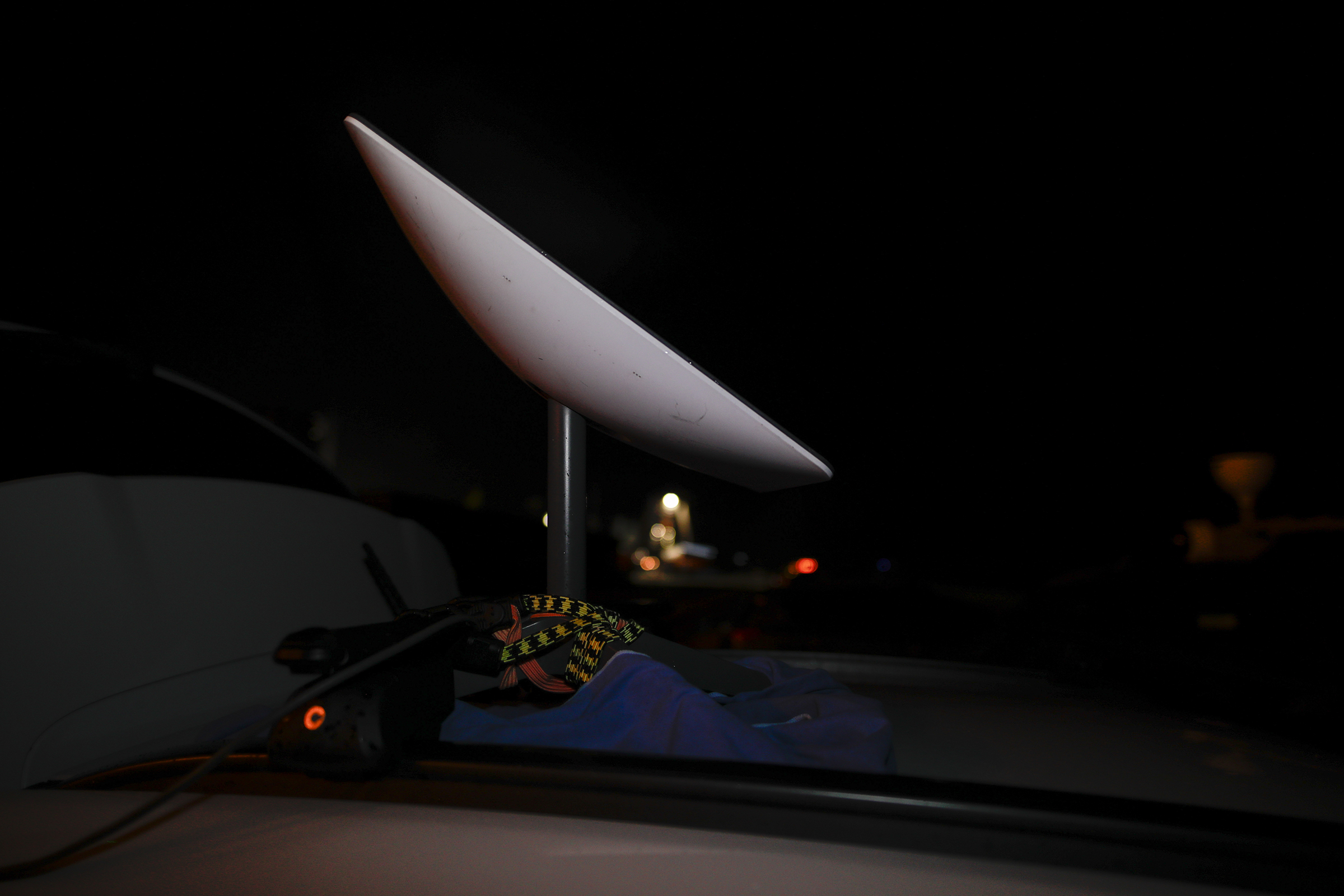
Starlink receivers have begun to arrive inside Iran, smuggled into the country in hopes of providing a backup internet should the Iranian regime shut down the country’s existing system. Starlink, operated by Elon Musk’s SpaceX, is a global network of low-orbit satellites that bypasses the terrestrial internet, and helped restore connectivity in Ukraine after the Russian invasion. Musk activated the satellites over Iran in September, after the U.S. government cleared the way for American tech companies to operate there in support of a wave of protests.
The arrival of the first dishes inside the Islamic Republic was confirmed to TIME on Friday by an activist working on the project from the United States. A video snippet circulating on social media earlier in the day showed a Starlink receiver searching for signal on a rooftop said to be in Tehran. The activist, who asked not to be identified for security reasons, declined to say how many of the devices were now in the country.
“It’s safer not to say anything about the numbers. I don’t want them to know what to look for, the scale,” he said, referring to Iran’s security services. “Let them wonder.”
If Ukraine is any guide, however, establishing a “replacement internet” will require at least several thousand of the compact, rooftop receivers. The goal is twofold—to allow protestors to communicate among themselves, and to ensure that the world continues to have a window on the confrontation with a theocratic regime with a history of brutally putting down peaceful protests, especially when it can do so unseen. In 2019, Iranian authorities almost completely shut down the internet for a week while the country’s security forces used live fire to end a wave of spontaneous protests after a fuel price hike.
More than 200 people, a tenth of them children, already have been killed by Iranian security in the current protests, according to human rights groups. The protests were sparked by outrage over the Sept. 16 death of 22-year-old Mahsa Amini while in custody of the regime’s “morality police.” In the month since, the internet has been cut off for much of the day in Tehran and other population centers, Instagram has been shut down, and remaining platforms heavily filtered. A prominent activist inside the country has called access to Starlink “incredibly important.”
On a practical level, the effort to bring Starlink to Iran is both simple and dangerously complex. Activating the satellites to deliver the internet was a matter of flipping a switch. But to get to those Iranian rooftops, the dishes equipped to receive the signal must penetrate a heavily guarded border and, once set up, elude detection by authorities. The U.S. activist said that’s a problem. “Starlinks are not ready for countries with hostile governments,” he said. “The company needs to do more to make them more practical and safer for people who live in these countries.” He declined to offer details.
“No Starlink donation” from the company was involved in smuggling effort so far, the activist noted. Nor, he said, was the U.S. government involved —even though the Biden Administration is now also soliciting assistance from Musk (who has lately fumed about bearing the costs of the Ukraine project). In Iran, Washington’s involvement would be double-edged. On one hand, it could help immensely with costs and logistics. On the other, it would heighten the risk for any Iranians caught with the devices. For decades, activists and even mild-mannered Iranians attempting to foster civil society in the country have as a matter of course been accused by government interrogators of being U.S. agents.
A second video also surfaced on Friday—this one a promotional short produced by the activists running the underground effort, an effort that moved aboveground with circulation of images of the rooftop dish. The second film is just a slow overhead pan of Starlink receivers boxed and ready to ship. Scrawled in Farsi on one box is the slogan that emerged in the first days of the protest: “Woman, Life, Freedom.” A few beats later, the back of a satellite dish is being inscribed #MahsaAmini. No words are heard beyond the soundtrack, a sample of “Can’t Hold Us” by Macklemore and Ryan Lewis that includes the lines: “Give it to the people/Spread it across the country.”
More Must-Reads from TIME
- Introducing the 2024 TIME100 Next
- The Reinvention of J.D. Vance
- How to Survive Election Season Without Losing Your Mind
- Welcome to the Golden Age of Scams
- Did the Pandemic Break Our Brains?
- The Many Lives of Jack Antonoff
- 33 True Crime Documentaries That Shaped the Genre
- Why Gut Health Issues Are More Common in Women
Contact us at letters@time.com